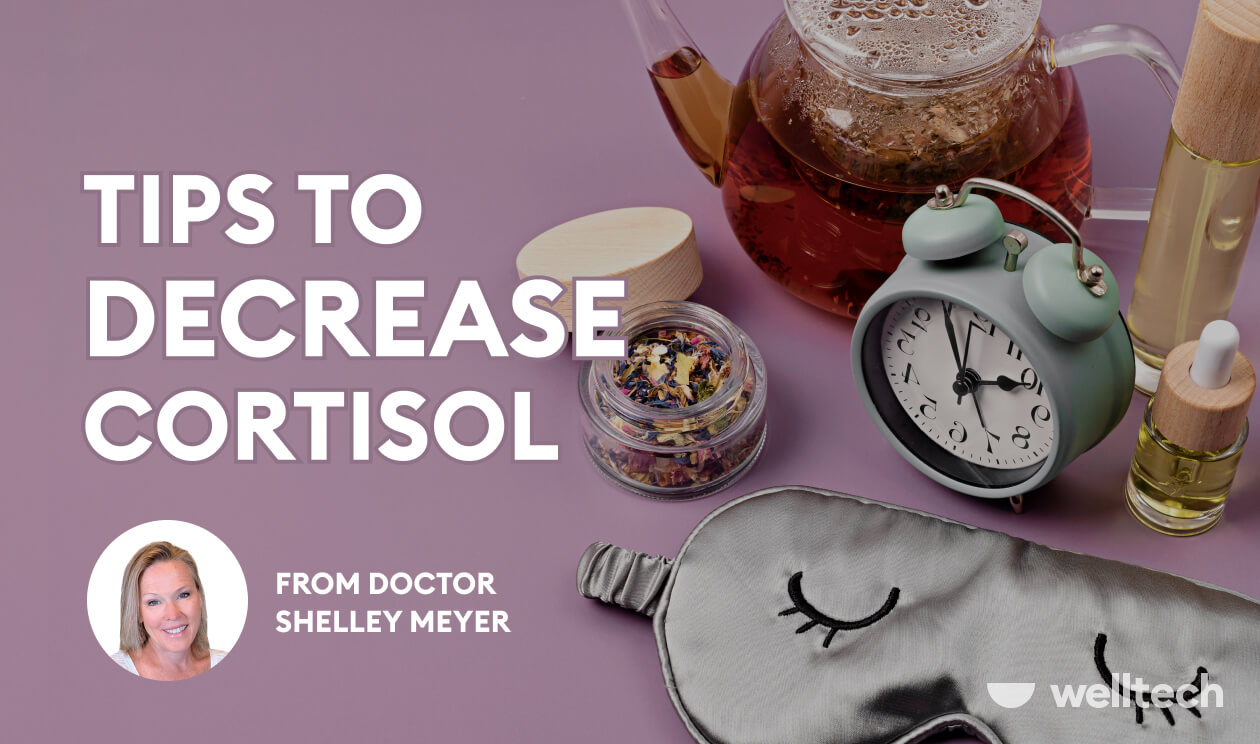Natural Ways to Lower Cortisol — From a Functional Medicine Physician Who’s Seen It Work


August 21, 2025


DO, RDN, IFMCP | Functional Medicine Physician | Family Physician | Registered Dietitian/Nutritionist | YouTube Creator @DrShelleyMeyer
If you’ve been struggling with stubborn weight gain, poor sleep, or that restless “wired but tired” feeling, your cortisol levels could be part of the problem.
In a recent video on Feel Good by Welltech YouTube channel, Dr. Shelley Meyer, a functional medicine physician, nutritionist, and midlife women’s health expert, explained how high cortisol can affect the body and what to do about it.
Cortisol is the body’s main stress hormone. Under normal conditions, it peaks in the morning to help you wake up and gradually drops throughout the day.
“That’s the way it’s supposed to be,” Dr. Shelley explains. But in today’s fast-paced world, the curve is often flipped — cortisol that is staying high for too long can lead to fatigue, belly fat, anxiety, and poor recovery.
For women in perimenopause and menopause, lower estrogen and progesterone make the body even more sensitive to cortisol’s effects. Poor sleep, blood sugar crashes, overtraining, and too much alcohol can all make matters worse.
Meyer recommends adding these to your diet to help bring cortisol back into balance:
Wild salmon, sardines, flax, chia, and walnuts — “They’re rich in omega-3s that can lower inflammation and regulate cortisol,” she says.
Leafy greens like spinach, kale, and Swiss chard — a magnesium boost to calm the nervous system.
Nuts and seeds such as pumpkin seeds, sesame seeds, and Brazil nuts — great for fiber, healthy fats, and blood sugar stability.
Berries and pomegranate seeds — antioxidant-rich foods that reduce oxidative stress.
Green tea — a gentler caffeine option with L-theanine, which calms the brain without spiking cortisol.
Food isn’t the only factor. Meyer outlines five daily habits that can make a noticeable difference:
Better sleep hygiene — consistent bedtimes, cool dark rooms, and avoiding screens before bed.
Morning sunlight — helps reset your body’s natural cortisol rhythm.
Breathwork or meditation — “Even five minutes can activate the vagus nerve and calm your stress response,” she says.
Gentle movement — walking, yoga, or low-intensity strength training instead of excessive high-intensity workouts.
Reducing caffeine and alcohol — both can disrupt sleep and keep cortisol levels elevated.
Just as important as what you add is what you cut back on. Meyer cautions against ultra-processed sugar, late-night screen time, overtraining, irregular sleep schedules, and excessive alcohol — all of which can keep cortisol high.
Dr. Shelley advises starting slowly: “Pick one habit, pick one food, pick one thing to avoid, and build from there,” she suggests. The goal isn’t to overhaul your life overnight, but to consistently send your body the right signals for balance, better sleep, and more energy.
This article is intended for general informational purposes only and does not address individual circumstances. It is not a substitute for professional advice or help and should not be relied on to make decisions of any kind. Any action you take upon the information presented in this article is strictly at your own risk and responsibility!


